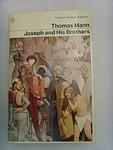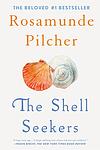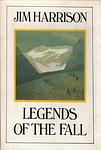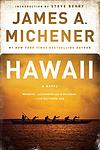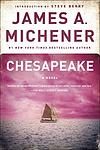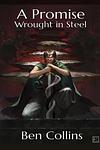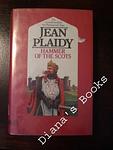The Greatest "Historical fiction, Sagas, Fiction" Books Since 1900
Click to learn how this list is calculated.
This list represents a comprehensive and trusted collection of the greatest books. Developed through a specialized algorithm, it brings together 300 'best of' book lists to form a definitive guide to the world's most acclaimed books. For those interested in how these books are chosen, additional details can be found on the rankings page.
Genres
Historical fiction is a genre of literature that combines fictional stories with real historical events, settings, and characters. These books often take place in a specific time period and are based on research and factual information, but also include imaginative elements to create a compelling narrative. Historical fiction allows readers to experience the past in a unique and engaging way, while also providing insight into the social, cultural, and political issues of the time.
Countries
Date Range
Reading Statistics
Click the button below to see how many of these books you've read!
Download
If you're interested in downloading this list as a CSV file for use in a spreadsheet application, you can easily do so by clicking the button below. Please note that to ensure a manageable file size and faster download, the CSV will include details for only the first 500 books.
Download-
1. The Forsyte Saga by John Galsworthy
"The Forsyte Saga" is a series of three novels and two interludes that chronicle the lives of a wealthy, upper-middle-class family in England during the late 19th and early 20th centuries. The saga explores themes of social class, wealth, love, and the changing societal norms of the time, with a particular focus on the character of Soames Forsyte and his obsessive desire to possess both people and things. The narrative provides a detailed examination of the family's fortunes, misfortunes, and intricate relationships, offering a critique of the materialistic culture of the era.
-
2. Joseph and His Brothers by Thomas Mann
This novel is a re-imagining of the biblical story of Joseph, known for his coat of many colors. The narrative delves deeply into the psychological aspects of each character, exploring their motivations, flaws, and virtues. The story covers Joseph's life from his early years in Canaan, through his betrayal by his brothers who sell him into slavery in Egypt, his rise to power in Pharaoh's court, and his eventual reconciliation with his brothers. The novel is a rich tapestry of dreams, myths, and rituals, blending biblical tradition with the author's own philosophical insights.
-
3. The Pillars Of The Earth by Ken Follett
Set in the 12th century, the novel is a sweeping epic of good and evil, treachery and intrigue, violence and beauty. It revolves around the construction of a cathedral in the fictional town of Kingsbridge, England. The story is centered on the lives of three main characters: a master builder, a monk, and a noblewoman, whose destinies are intertwined with the building of the cathedral and the tumultuous events of the time, including war, religious strife, and power struggles.
-
4. Roots by Alex Haley
This groundbreaking historical novel follows several generations of an African American family, beginning with Kunta Kinte, a man captured in Gambia in the 18th century and sold into slavery in the United States. Through Kinte and his descendants, the narrative explores the brutal realities of slavery and its aftermath, the struggle for freedom and civil rights, and the perseverance of a family through immense hardship. The story is based on the author's own family history, making it a significant work in the exploration of African American heritage and identity.
-
5. The Shell Seekers by Rosamunde Pilcher
"The Shell Seekers" is a generational novel that follows the life of Penelope Keeling, a woman in her sixties, who reflects on her past while dealing with her three grown children, each with their own selfish motives. When Penelope discovers a valuable painting in her possession, her children's greed surfaces as they pressure her to sell it. Instead, Penelope embarks on a journey of self-discovery and reflection, revisiting her bohemian past, her wartime romance, and the beauty of her father's paintings. The novel explores themes of family, love, loss, and the importance of art and beauty in life.
-
6. The Deptford Trilogy by Robertson Davies
"The Deptford Trilogy" is a series of interconnected novels that explore the life of a man from a small Canadian town named Deptford, and the ripple effects of a single childhood event that shaped the lives of three boys. The narrative weaves themes of love, guilt, art, and the complexity of human nature. The story is told from multiple perspectives and spans several decades, providing a deep exploration of the characters' psychological and spiritual development.
-
7. Legends of The Fall by Jim Harrison
"Legends of the Fall" is a collection of three novellas, each exploring themes of love, war, and betrayal against the backdrop of the American wilderness. The titular novella follows the lives of three brothers and their father living in the remote wilderness of Montana in the early 1900s. The three brothers, each vastly different in character, find their bond tested when they all fall in love with the same woman. Their individual and collective decisions lead to a series of tragic events that shape their destiny. The other two novellas also deal with complex relationships and moral dilemmas, set against the harsh and unforgiving landscapes of America.
-
8. Hawaii by James Albert Michener
The novel is a sweeping historical saga that traces the history of Hawaii from its formation through volcanic activity, the arrival of the first Polynesians, the coming of the missionaries, the influx of Asian immigrants, to its eventual statehood. The story is told through the experiences of a series of characters, each representing different ethnic groups and periods in Hawaii's history. The book explores themes of cultural clash, adaptation, and survival as it delves into the rich and complex tapestry of cultures that make up Hawaii.
-
9. Homegoing by Yaa Gyasi
This epic novel traces the lineage of two half-sisters from 18th century Ghana to present day America. One sister is sold into slavery and shipped to America, while the other is married off to a British slaver and remains in Africa. The book follows their descendants through the generations, exploring the lasting impact of slavery and colonialism on Black lives. The narrative showcases the struggles, resilience, and triumphs of each generation, providing a deep and personal view into the historical events and societal changes that shaped their lives.
-
10. The Diviners by Margaret Laurence
"The Diviners" is a novel about a woman named Morag Gunn who grows up in small-town Manitoba, Canada, and becomes a successful novelist. The story follows Morag's life from childhood to adulthood, exploring her relationships, struggles, and personal growth. The narrative delves into themes of identity, memory, and the importance of understanding one's past. The protagonist's journey to self-discovery and acceptance is interwoven with the broader cultural and historical context of Canada in the mid-20th century.
-
11. The Manor, The Estate, The Family Moskat by Isaac Bashevis Singer
The book is a sweeping saga that explores the multigenerational story of a Jewish family living in Poland from the late 19th century through the eve of World War II. It delves into the lives, loves, and losses of the family members as they navigate the changing social and political landscape. The narrative captures the tension between tradition and modernity, the struggle for survival amidst anti-Semitism, and the impact of historical events on personal identities and destinies. Through vivid characterizations and rich detail, the novel paints a portrait of a community and a way of life on the brink of profound change.
-
12. The Balkan Trilogy by Olivia Manning
The narrative follows a young British couple, Harriet and Guy Pringle, as they navigate the tumultuous landscape of Eastern Europe during the early years of World War II. Set against the backdrop of the Balkans, the trilogy paints a vivid picture of the couple's experiences in Romania and Greece, where they encounter a diverse cast of characters, from diplomats and soldiers to refugees and spies. As the war encroaches on their lives, their marriage is tested by the strains of displacement, political uncertainty, and personal betrayal, offering a poignant exploration of love, loyalty, and the human spirit amidst the chaos of conflict.
-
13. Cutting for Stone by Abraham Verghese
The novel follows the life of twin brothers born from a secret union between an Indian nun and a British surgeon in Ethiopia. Their mother dies during childbirth and their father disappears, leaving them to be raised by two doctors at the mission hospital where they were born. The story spans several decades and continents, and explores themes of love, betrayal, medicine, and the complexity of family ties. One of the brothers, a gifted surgeon, flees to America after a political revolution in Ethiopia, while the other remains and struggles with the challenges of practicing medicine in a developing country.
-
14. The House At Sunset by Norah Lofts
This novel concludes a captivating trilogy, bringing to life the enduring saga of a Suffolk house through the ages. In this final installment, the narrative spans the tumultuous years of the early 20th century, tracing the house's fate as it changes hands and undergoes transformations. The story delves into the lives of its inhabitants, their struggles, aspirations, and the secrets hidden within the walls of the ancient dwelling. Through wars, social changes, and personal upheavals, the house stands as a silent witness to the passage of time, embodying the essence of continuity and the inevitable flux of human existence.
-
15. Soundjata Ou L'épopée Mandingue by Djibril Tamsir Niane
"Soundjata Ou L'épopée Mandingue" is a historical novel that tells the captivating story of Soundjata Keita, the legendary founder of the Mali Empire. Set in 13th-century West Africa, the book follows Soundjata's journey from a crippled and exiled prince to a powerful warrior king. Through battles, alliances, and encounters with mystical beings, Soundjata's determination and leadership skills are tested as he strives to unite the Mandinka people and reclaim his rightful throne. This epic tale explores themes of courage, destiny, and the enduring power of legends.
-
16. Spring Moon by Betty Bao Lord
Set against the backdrop of a changing China from the late Qing Dynasty through the Cultural Revolution, the novel follows the life of Spring Moon, a young noblewoman of the Soong family. As she navigates the complexities of tradition and modernity, Spring Moon experiences personal tragedies and triumphs while witnessing the seismic shifts in Chinese society. Her story is one of love, loss, and resilience, reflecting the broader historical forces at play that reshape her country and her family's destiny. Through her eyes, readers experience the clash of old values with new ways, and the struggle to find harmony amidst chaos.
-
17. War and Remembrance by Herman Wouk
The novel is a historical saga that continues the story of an American family during World War II. It follows the naval career of one of the family members, his experiences in the Pacific, and his struggles with his marriage. Simultaneously, the narrative also focuses on the harrowing experiences of his Jewish relatives in Europe, who are caught in the horrors of the Holocaust. The novel provides a detailed account of the war on multiple fronts, both personal and political, and explores themes of love, loss, and the human capacity for survival.
-
18. The Duke and I: A Bridgerton Novel by Julia Quinn
In this Regency-era romance, a young woman of marriageable age faces societal pressures to find a suitable match. When she forms a pact with a charming and rebellious duke, they agree to a ruse of courtship to stave off the advances of other suitors and meddling family members. However, as they navigate the complexities of their faux engagement, they find themselves drawn to each other in unexpected ways, challenging their initial intentions and leading them to confront the possibility of a genuine and deep-seated love. Their story is a dance of wit, romance, and the intricate social mores of high society, revealing that the path to true love is seldom straightforward.
-
19. Chesapeake by James A. Michener
"Chesapeake" is a historical saga that spans four centuries, telling the story of the settlement and development of the Chesapeake Bay area in the United States. The narrative follows the lives and adventures of multiple generations of families, both Native American and immigrant, as they navigate the challenges of colonization, revolution, slavery, and the Civil War. The book offers a rich and detailed perspective on American history, society, and culture through the lens of these families and their experiences.
-
20. The Captains And The Kings by Jennifer Johnston
"The Captains And The Kings" is a poignant and introspective novel that delves into the complex dynamics of a wealthy Irish family. Set against the backdrop of political unrest and social change in Ireland, the story follows the lives of the dysfunctional King family as they navigate through personal tragedies, secrets, and the weight of their own expectations. With beautifully crafted prose and deeply flawed characters, the book explores themes of love, loss, and the enduring power of family bonds.
-
21. Green City In The Sun by Barbara Wood
Set against the backdrop of colonial Kenya, the novel is a sweeping saga that explores the intertwined lives of two families—one British and one Kikuyu—over several decades. As the British family establishes a vast estate and hospital in the Kenyan highlands, their presence and actions deeply affect the local Kikuyu people. The story delves into themes of colonialism, cultural conflict, love, betrayal, and the struggle for power. As the characters navigate personal and political upheavals, the narrative reveals the complexities of race relations and the impact of colonial rule on both the land and its people, culminating in a dramatic and emotional conclusion that reflects the broader historical changes taking place in the region.
-
22. Exodus by Leon Uris
The novel is an epic historical narrative centered around the founding of the State of Israel, following the intertwined lives of several characters who are Holocaust survivors, Jewish refugees, and key figures in the Zionist movement. The story delves into the struggles faced by Jewish immigrants as they endeavor to establish a new homeland in Palestine, overcoming British blockade and Arab opposition. It explores themes of love, sacrifice, and the enduring human spirit, set against the backdrop of political turmoil and the fight for a national identity. The book's title itself is a powerful allusion to the biblical Exodus, drawing a parallel between the ancient Israelites' escape from Egyptian bondage and the modern journey of Jews seeking a homeland.
-
23. The Plantagenet Saga by Jean Plaidy
"The Plantagenet Saga" is a historical fiction series that explores the lives and reigns of the Plantagenet dynasty in England, from Henry II to Richard III. Through vivid storytelling, the series provides an intimate look at the personal lives, political intrigues, and tumultuous events of this influential royal family. The saga is known for its meticulous historical research, detailed descriptions, and engaging narratives, bringing to life the complex relationships, power struggles, and pivotal moments that shaped England's history.
-
24. Hanna's Daughters by Marianne Fredriksson
The novel is an evocative family saga that spans three generations of women, exploring their lives, struggles, and interconnected stories against the backdrop of Sweden's cultural and social evolution. It delves into the experiences of Hanna and her daughter, Johanna, and granddaughter, Anna, as they navigate the complexities of their relationships, personal identities, and the shifting roles of women through the 20th century. Through their individual journeys, the book addresses themes of love, loss, and the enduring bonds of family, while also painting a vivid portrait of historical events and changes that have shaped the lives of women across generations.
-
25. The Book Of Fathers by Miklós Vámos
"The Book of Fathers" chronicles the lives of twelve generations of men from a Hungarian family, spanning over 300 years from the 18th century to the modern day. Each chapter focuses on one descendant, capturing the historical and personal challenges they face, from the rise and fall of empires to the intimate struggles of love and loss. The novel weaves a tapestry of Hungarian history and the family's legacy, marked by a mystical diary that is passed down from father to son, which possesses the power to influence the fate of its keeper. Through the generations, the book becomes a symbol of the family's heritage and the enduring connection between the past and the future.
Reading Statistics
Click the button below to see how many of these books you've read!
Download
If you're interested in downloading this list as a CSV file for use in a spreadsheet application, you can easily do so by clicking the button below. Please note that to ensure a manageable file size and faster download, the CSV will include details for only the first 500 books.
Download
